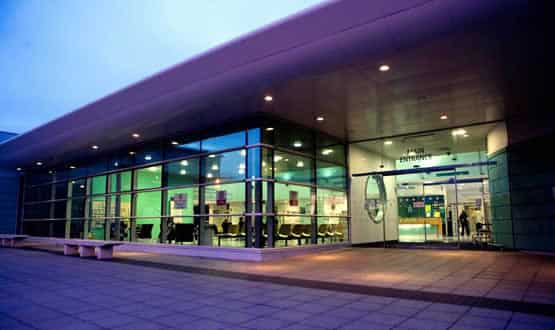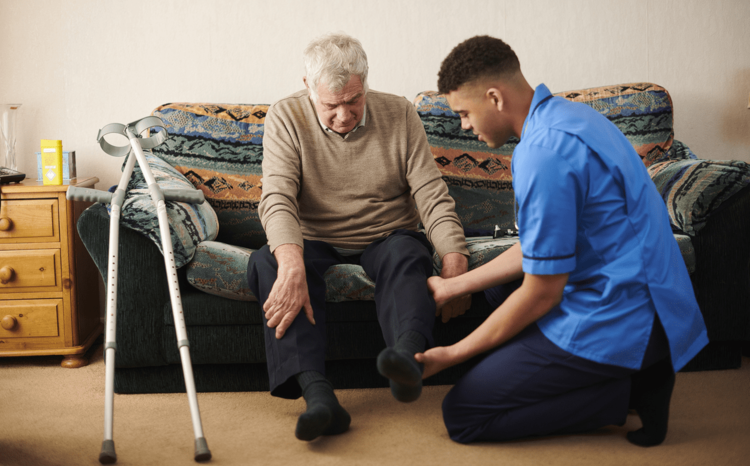Liverpool Heart and Chest Hospital remote monitoring a huge success
- 7 June 2023

Remote monitoring being used at Liverpool Heart and Chest Hospital to pick up on deteriorations in patients waiting for cardiac surgery has been a resounding success with clinicians and patients.
Clinicians are now able to monitor patients at the touch of a button, providing safety and reassurance for them in their own homes.
The remote monitoring programme is part of a nationally funded project set up to explore communications and reassurance for patients as they wait for surgery.
The project also addresses patient safety during the waiting period to spot any signs of deterioration, allowing patients’ operations to be based on clinical need.
Bill Kirmani, a heart surgeon, is leading the cardiac surgery telehealth project, supported by Mersey Care NHS Foundation Trust and remote monitoring providers Docobo.
He said: “Patients may naturally be concerned and anxious whilst waiting for heart surgery. Remote monitoring allows us to reassure patients that they are being given regular check-ups, without them having to go into a hospital clinic or a GP surgery.
“It also allows surgeons to review patients much more closely than ever before, ensuring those whose needs change on the waiting list can be picked up and treated sooner.”
The telehealth programme has two main parts – pre-habilitation and symptom monitoring.
Symptom monitoring:
When a patient has been seen in the clinic and put on a cardiac surgery waiting list, they can be offered remote monitoring. Patients will be loaned equipment such as blood pressure and oxygen monitors to take readings at home.
These readings are reviewed daily at the Clinical Hub at Mersey Care. Specialist nurses assess information and can advise the patient if they need to see their GP, attend hospital or let the patient’s surgeon know of any important changes.
Any major changes can allow the surgeon to bring forward the operation, potentially avoiding the need for A&E visits.
Pre-habilitation:
The cardiac remote monitoring programme also gives patients advice on being fit for surgery such as diet and exercise. There is also extra support for diabetes control, improving breathing including stopping smoking, and psychological preparation for surgery.
The programme means that not only can problems be identified sooner, but the team are also better placed to prevent them, too, with a digital pre-habilitation programme.
This brings specialist hospital care to patients’ homes through their smartphones, as guided exercise, diet and disease management can help patients be as fit as possible for their operation.
A patient who has been part of the remote monitoring programme said: “For me, I found the access to my blood pressure readings and oxygen levels very useful. It would tell me if my blood pressure was out of ordinary or oxygen levels too low, and I would get a phone call.
“If someone had asked me as a new patient coming in ‘would you consent to remote monitoring again?,’ I would have absolutely no doubt – it is something I would recommend … simply for the peace of mind – because it really does take away the stress of what’s going to happen moving forward.”
The remote monitoring programme at Liverpool Heart and Chest Hospital NHS Foundation Trust comes after they selected healthcare informatics provider Epro to implement a clinically focused digital platform, a sign of the trust’s bold digital ambitions.





